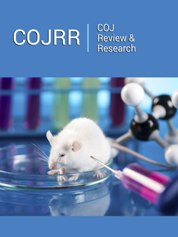- Submissions
Abstract
COJ Reviews & Research
Organic Farming, Sustainability and Health
-
Open or Close Neerja Kapoor and Prahlad Kumar*
Department of Economics, University of Allahabad, India
*Corresponding author: Prahlad Kumar, Department of Economics, University of Allahabad, India
Submission: May 01, 2018; Published: May 30, 2018

ISSN 2639-0590Volume1 Issue1
Abstract
The term “organic” is best thought of ‘as referring not to the type of inputs used, but to the concept of farm as an organism , in which all the components – the soil minerals, organic matter, microorganisms, insects, plants, animals and humans – interact to create coherent, self- regulating and stable whole.’ Reliance on external inputs, whether chemical or organic, is reduced as far as possible. Organic farming is thus a holistic production system that , takes the local soil fertility as a key to successful production. As a logical consequence, the International Federation of Organic Agriculture (IFOAM) stresses and supports the development of self- supporting systems both on local and regional levels.
The basic rules of organic production are that natural inputs are approved and synthetic inputs are prohibited. But there are exceptions in both these cases. Certain natural inputs determined by several certification programs as harmful to human health or environment are strictly prohibited .e.g. arsenic, while certain synthetic inputs identified as consistent and essential with organic farming philosophy, are allowed. e. g. insect pheromones. An “organic” label indicates to the consumer that the product has been produced using certain special production methods. In other words, ‘organic’ is a ‘process claim’ rather than a ‘product claim’.
Sustainable agriculture describes farming system that focuses on producing food in a way that does not degrade the environment and contributes to the livelihood of the communities. It is the act of farming using the principles of ecology, the study of relationships between organisms and their environment. Adoption of modern farming has resulted in land degradation and environment pollution besides creating a very unsustainable system for the mankind. The organic farming increases the crop productivity while sustaining the ecosystems.
Health is also a consideration in all farming practices. Humans may be exposed to chemicals and pathogens in the environment by a number of routes, including the consumption of crops, treated with pesticides or have taken up contaminants from soil; livestock that have accumulated contaminants through the food chain; fish exposed to contaminants in water; surface and ground water used for drinking; from direct contact with water bodies or agricultural soil; via the inhalation of particulates or volatiles etc. There has been a general decline in the health of human beings due to increase in the amount of toxins in bodies and a decrease in the amount of nutrients in the diet.
In the present paper, the benefits of organic farming, its sustainability and health effects have been discussed. The government should play a major role in motivating the farmers towards adopting organic farming by initiating awareness programs on a large scale and by field demonstrations. These programs should also be aimed to influence the ultimate consumers about benefits of organic food.
Keywords: Organic farming; Traditional farming; Sustainable agriculture; Health
 a Creative Commons Attribution 4.0 International License. Based on a work at www.crimsonpublishers.com.
Best viewed in
a Creative Commons Attribution 4.0 International License. Based on a work at www.crimsonpublishers.com.
Best viewed in 







.jpg)





























 Editorial Board Registrations
Editorial Board Registrations Submit your Article
Submit your Article Refer a Friend
Refer a Friend Advertise With Us
Advertise With Us
.jpg)






.jpg)













.bmp)
.jpg)
.png)
.jpg)














.png)

.png)



.png)






